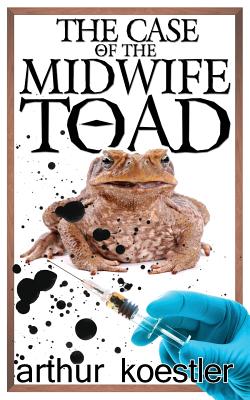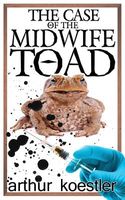- Welcome to FictionDB, Guest
- | My Account
- | Help

The Case of the Midwife Toad — Arthur Koestler
On September 23, 1926, and Austrian experimental biologist named Dr. Paul Kammerer blew his brains out on a footpath in the Austrian mountains. His suicide was the climax of a great evolutionary controversy which his experiments had aroused. The battle was between the followers of Lamarck, who maintained that acquired characteristics could be inherited, and the neo-Darwinists, who upheld the theory of chance mutations preserved by natural selection. Dr. Kammerer's experiments with various amphibians, including salamanders and the midwife toad (Alytes obstetricans), lent much weight to the Lamarckian argument and drew upon him the full fury of the orthodox neo-Darwinists.
Arthur Koestler had known about Dr. Kammerer's work when he himself was a student in Vienna, and he has always been interested in this tragic story. He gives a fascinating description of the venomous atmosphere in which the battle was fought and of the lengths to which apparently respectable scholars would go to discredit their opponents. Heading the attack on Kammerer was a British scientist, William Bateson, who hinted that the Viennese's experiments were fakes, but who failed to examine the evidence, including the so-called nuptial pads of Kammerer's last remaining specimen of the midwife toad. It was a young American scientist who delivered the coup de grace; on a visit to Vienna, he discovered that the discoloration of the nuptial pads was due not to natural causes but to the injection Indian ink. When his findings were published, Kammerer shot himself.
Mr. Koestler, whose recent writings, in books such as The Act of Creation and The Ghost in the Machine, have been in part concerned with evolutionary theory, decided to investigate this old mystery. When he started on his researches, he expected to relate the tragedy of a man who had betrayed his calling, for Kammerer's suicide was accepted as a confession of guilt and his work was discredited from that day to this. Instead, as Mr. Koestler read the contemporary papers, corresponded with Kammerer's daughter, Bateson's son, and the surviving scientists who attended Kammerer's lecture in Cambridge, he found himself writing a vindication of a man who in all probability was himself betrayed. The story that emerges is, on one level, fascinating piece of scientific detection; on another, it is a moving and human narrative about a much abused, brilliant and lovable figure. Though no Lamarckian himself, Mr. Koestler ends the book with an appeal to biologists to repeat Kammerer's experiments with an open mind in order to verify or refute them. If Kammerer's claims were posthumously confirmed our outlook on evolution would be significantly changed.
A superb intellectual thriller whose implications still reverberate today, The Case of the Midwife Toad is an entirely new kind of book for Mr. Koestler, and perhaps only he could have written it, for it required expert knowledge and familiarity with the academic world of science, combined with the creativity and imaginative insight of an outstanding novelist.


